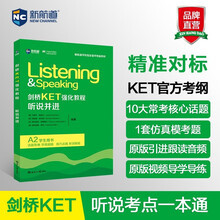Translate into English,using a preposition+gerund.
1.她很喜欢(keen on)收集各国的邮票。
She is keen on collecting stamps of various countries.
人们赞扬他从冰河中救出了落水儿童。
He was praised for rescuing the child from the frozen river.
他因说话粗野(say something rude)而受到父母的批评。
He was criticised by his parents for saying something rude.
学生们从听讲座中受益(benefit from)不少。
The students have benefited a great deal from attending the lectures.
毒贩子(drug-dealers)一到机场就被逮捕了。
On arriving at the airport,the drug-dealers were arrested.
珍妮一出车站就受到老朋友们的迎接。
On stepping out of the station,Jenny was met by her old friends.
Fill in, using the present continuous tense as a future form.
(注意使用正确的疑问句句型结构。下同。)
1. Im meeting her at the station tomorrow. (meet)
2. Im taking my sister to the ballet tonight. (take)
3. —How are you going to the airport tomorrow morning? (go)
—Im going by car. My husband is driving me there. (go / drive)
4. mare you giving him something for his birthday? (give)
—Yes, Im giving him a dictionary. (give)
5. mare you doing anything tonight? (do)
—Yes, Im going to my computer class. (go)
Fill in with the simple future form.
1. Youll be able to drive after another five lessons. (be)
2. Ill remember this day all my life. (remember)
3. i wonder how many of us still will be here next year. (be)
4. Hell be offended if you dont invite him. (be offended)
5. — What will your father say when he hears about this accident? (say)
He will not say much but be will not lend me the car again. (say / not lend)
Fill in with will or be going to:
1. — Will you open the door for me, please? (open)
— Yes, certainly.
2. "Will you read the passage aloud, please?" said the teacher. (read)
3. —Will you put my car away for me, please? (put)
—Yes, certainly.
4. m Will you have another cup of coffee? (have)
—No, thank you.
5. Will you drive please? I dont like driving at night. (drive)
6. Are you going to paint the whole room by yourself? It will take ages. (paint)
7. Are you going to walk there in this rain? Youll get awfully wet. (walk)
8. What are those notes for? Are you going to give a lecture? (give)
Match the language and the countries, using the passive voice.
EXAMPLE: English is spoken in Britain and Australia.
French is spoken in France, Belgium, Switzerland and Canada.
Spanish is spoken in Spain and most Latin American countries such as Mexico and Chile.
Italian is spoken by the people of Italy and Switzerland.
German is spoken in Germany, Austria, Switzerland and Belgium.
English is spoken in England and the United States and also some other countries such as
Canada, Australia etc.
Brazil is a Latin American country where Portuguese is spoken.
Match the parts:
1. Petrol prices... b a. ... was told to stay inside their homes.
2. This jacket ... e b. ... have been raised.
3. Five people .. f c. ... has been disconnected.
4. The telephone . .. c d. ... will be sent to candidates.
5. It appears the phone bill... h e. ... was made in Hong Kong.
6. Further information ... d f. ... were killed in the crash.
7. Smoking ... g g. ... is not permitted in public places.
8. The old town library ... i h. ... has been paid.
9. Before the storm everyone ... a i. ... is now being rebuilt.
Fill in with the correct passive form of the verb.
1. Application forms should be returned by mid-October. (return)
2. Further information may be obtained from the reception desk. (obtain)
3. You would be expected to take part in some sports. (expect)
4. Interviews will be held in early January. (hold)
5. Names of two referees should be given. (give)
6. Applications should be made on this form only. (make)
7. Teachers might be offered accommodation in college.(offer)
Choose who, which, that, or whom for the sentences.
1 A person who has a lively personality generally makes a good teacher.
2 This is the best school that I know about in this part of the country.
3 The teacher whom I felt most thankful for in my school days was my tutor.
4 Anyone who saw a child struck down without offering help was a coward.
5 The boys who won the match had been trained for years.
6 The friend with whom I was travelling in Europe spoke both French and Spanish.
7. The carpet that I am standing on is from Iraq.
8. The bike which/that I borrowed from John had a flat tire on the road.
9. This is the picture which/that I happened to find in a second-hand shop.
10. The room, which was both dark and filthy, had never been slept in.
Look at the above sentences again and indicate in which sentences the relative pronoun can
be omitted.
In sentences 2、3、7、8 and 9 the relatire pronoun can be omitted.
Join the sentences, making the first sentence a relative clause with who, that or which as
the subject of the clause.
EXAMPLE:
The train leaves at 5. / Youre too late to catch the train that leaves at 5.
1. Some things were stolen. / Have you got back the things which /that were stolen.
2. A woman answered the phone./ The woman who answered the phone asked me to call
back later.
3. A book was left behind on the desk. / The book which /that was left behind on the desk belongs to John.
4. Some people live in glass houses. / People who live in glass houses should not throw stones.
5. Some students want to succeed. / Students who want to succeed must do their assign-ments.
6. Some people work all the time. / People who work all the time dont have time to enjoy life.
7. Some cars use a lot of gas. / It is not at all cheap to ride cars which /that use a lot of gas.
8. Some dogs are specially trained. / Dogs which /that are specially trained are used to help blind people.
9. Some books are borrowed :[rom the library. / We must not write in the books which/that are borrowed from the library.
10. A girl sang the song. / She is the girl who sang the song.
……
展开










